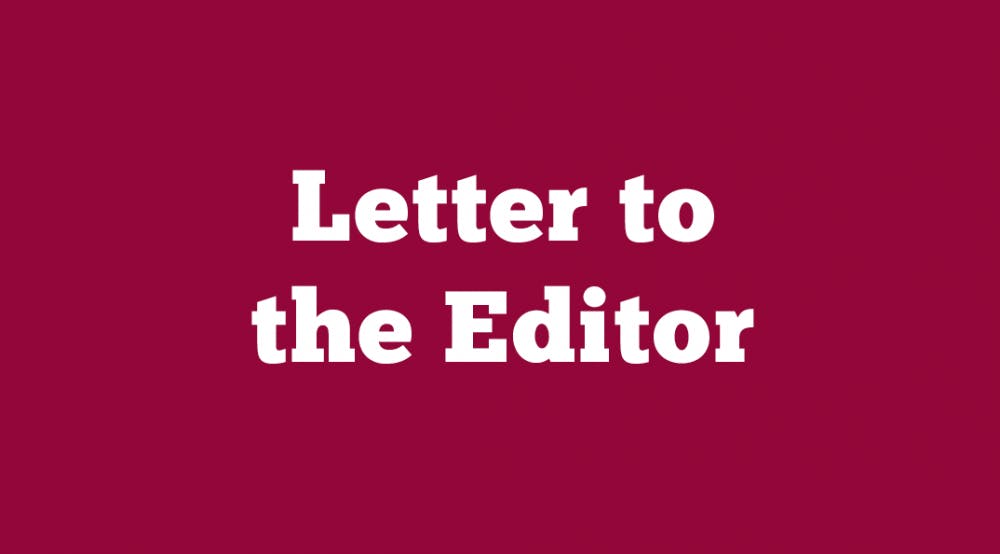LETTER TO THE EDITOR: Disappointed, but not surprised
TO THE EDITOR:
Central Michigan University has a wide variety of students that all identify with different things. Some are gay, some are African-American, some are foreign…you get the picture. While CMU has done their best to release statements about how much they care about diversity to the public, I think that the university’s public actions haven’t lived up to what their statements are saying.
Following incidences of students being hated for their race and gender identities, CMU has not done anything publicly to ensure these students that they are safe, and that their identities are appreciated on campus (besides release statements, of course.) It seems that the duty of protecting others who aren’t the same as the majority of white students on CMU’s campus has fallen into the hands of other fellow students. That being said, you’d think that students on campus would recognize how big of a problem it is that there was nothing being publicly done about these incidences — however, you’d be wrong.
With recent columns in CM Life being published about free speech and standing up for the “marginalized” Christians, it looks as though there is nobody to stand up for and rally behind our actually marginalized peers aside from a few organizations like the National Association for the Advancement of Colored People (NAACP), Spectrum of CMU, A Mile in Our Shoes (AMOS) and Student Union for Racial Solidarity (SURS), all of which are working very hard to change CMU’s culture.
To me personally, it was no surprise that these articles were written by white men. It is very easy to be blind to the problems at hand and “look at the other side of things” when you aren’t the one being affected by them. Sure, Addison had a good point: Hate speech is not illegal and is technically protected by law. However, I don’t think that anyone was complaining that the awful remarks written on Yasmeen, Rebecca and Jace’s doors were illegal. The problem was (and still is) that these blatant acts of hatred were uncalled for and unacceptable.
Telling people to have “thicker skin” is enabling racism, transphobia, xenophobia, you name it. You never know who your words may impact.
As a Muslim woman and a child of refugees, I have been harassed all of my life, getting called things like a “terrorist” or an “anchor baby." Even with these awful remarks aimed at me, I still am not able to relate to being attacked for my gender orientation or my race, and I think that this is a really important point to make. Many people try to relate their own experiences to ones that they cannot identify with, and it’s absolutely imperative to grasp this concept: If you don’t identify with the identities being attacked and insulted, you will never fully understand what the pain of being attacked for those identities feels like.
The belief that minorities need “thicker skin” and need to just accept the insults thrown their way simply because hate speech is protected by law is toxic and absurd. There shouldn’t be a need for “thick skin," there should be a need for equality amongst everyone. This should be a generation preaching acceptance and standing up against hatred, not a generation saying that “hate speech is protected by law," and that this makes harassment OK.
However, I want to make another point perfectly clear: Intolerance and hatred should not be battled with even more intolerance and hatred. In my opinion, intolerance should be used as an opportunity to educate. With saying this, it’s not my goal to say, “Don’t be angry over hatred,” or, “Nobody will be intolerant if you just educate them,” because both of these statements are wrong, plain and simple. My point in making this statement is to say that for many, they really don’t understand what being a minority is like. For many, CMU’s campus is the most diversity they have ever experienced in their lives. Still, ignorance is not an excuse for intolerance.
There are several things the university can do to battle intolerance stemmed from ignorance. However, my best suggestion is to make classes like CGL145 (Racism/Discrimination in America Dialogue) and SOC323 (Racism and Inequality) mandatory for students to graduate, or, of course, actually reprimanding intolerant actions.
Until CMU begins to recognize and actually take action against hatred and intolerance, until they start to reprimand hatred and until they start to battle ignorance, this type of behavior will continue, and that’s not something that they’ll release a public statement about.
— LEJLA KEVRIC
Glendale, Arizona sophomore




